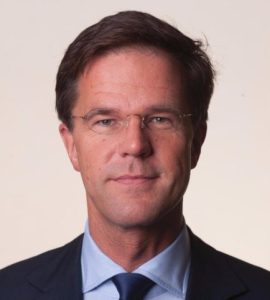Dutch government collapses over migration policy
The issue of immigration is once again causing political turmoil in Europe with the Dutch Government collapsing over a disagreement between collation parties on asylum policy.
The vexed area of reining in irregular migration was the final stumbling block that brought down Prime Minister Mark Rutte’s government.
Now the issue is likely to dominate the election that will follow.
Asylum applications in the Netherlands jumped by over a third last year to more than 47,000 and government figures said earlier this year that they expected roughly 70,000 applications in 2023.
Recently, Mr Rutte tried to force through a plan which included a cap on the number of relatives of war refugees allowed into the Netherlands at just 200 people per month. 
But junior coalition partners the Christian Union, a pro-family party, and the socially-liberal D66 were strongly opposed.
Essentially, coalition partners had objected to his proposal to restrict the scope for immigrant families to reunite.
“The decision was very difficult for us,” Mr Rutte told journalists as he announced his cabinet’s resignation.
He said the differences in views between the coalition partners were “irreconcilable”.
“All parties went to great lengths to find a solution, but the differences on migration are unfortunately impossible to bridge,” Mr Rutte said.
A compromise proposal, known as the ‘emergency brake’, which would only trigger the restrictions in the event of an excessively high influx of migrants, was not enough to save the government.
“The four parties decided that they cannot reach an agreement on migration. Therefore, they decided to end this government,” Christian Union’s spokesman Tim Kuijsten said.
Mr Rutte has agreed to lead a caretaker government until fresh elections, expected in mid-November.
The collapse of the Dutch government may give an opportunity for far-right parties, who have for more draconian ideas about migration to form government.
One of them is the anti-immigration Party for Freedom, led by Geert Wilders, who supported Mr Rutte’s first minority government 13 years ago but ultimately brought it down.
Wilders is a controversial figure across Europe. He has called for the Koran to be banned, taxing the hijab, shutting down all mosques, sealing off Dutch borders to Muslim newcomers, and pulling the Netherlands out of the European Union.
He was accused of criminally insulting religious and ethnic groups and inciting hatred in 2011 but was found not guilty at trial.
He is an icon of America’s far right and at the forefront of a wave of anti-immigrant populism sweeping Europe.
In recent local elections in Spain, hard right ant-immigration parties made gains against incumbent left-leaning parties, putting pressure on liberal Prime Minister Pedro Sanchez, who faces an imminent general election.
In Sweden, the ruling coalition relies on support from a party with neo-Nazi roots and in Finland, where the right has formed a government coalition, a key minister resigned recently after it emerged he had made heil Hitler jokes.
In Germany, where right wing politics has long been taboo, an economic downturn and a surge in asylum seeker arrivals have helped the far-right Alternative for Germany party gain ground.












